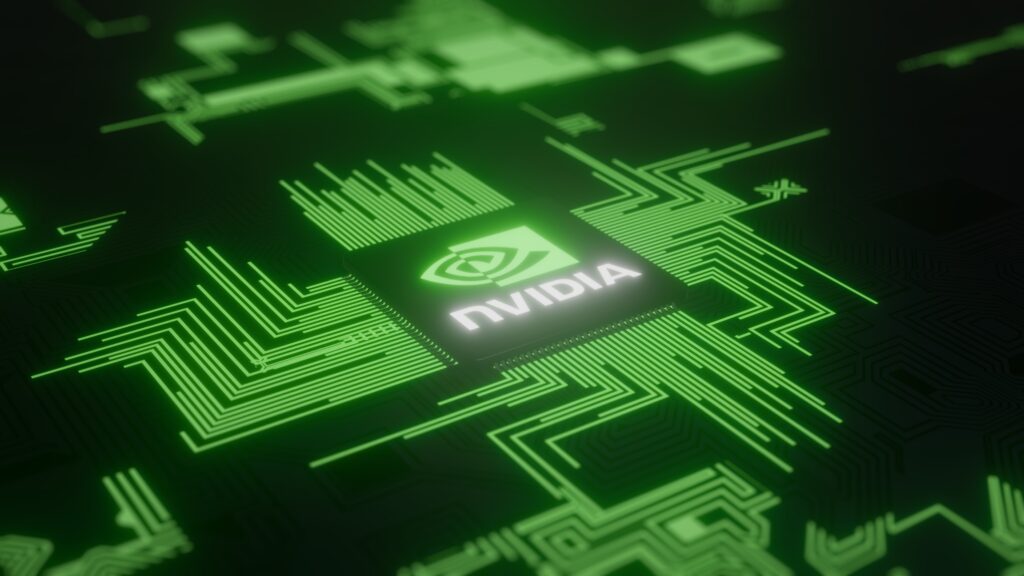Nvidia’s CEO, Jensen Huang, often referred to as the “Taylor Swift of tech,” has propelled the company to the forefront of the global race for artificial intelligence (AI). However, with growing tensions between the U.S. and China over trade and high-tech exports, Nvidia is caught in the middle. On Thursday, Huang arrived in Beijing for talks with Chinese officials, just days after the U.S. imposed new export restrictions targeting Nvidia’s AI products.
U.S. Export Restrictions and Nvidia’s Response
Nvidia, a California-based semiconductor giant, now requires official permission to export its H20 AI chips to China, following new U.S. Commerce Department rules aimed at safeguarding “national and economic security.” The department confirmed that these restrictions will remain in effect indefinitely.
The chipmaker, known for its advanced semiconductors used in generative AI—systems capable of creating content from user input—has become a vital player in the AI revolution. The surging global demand for AI chips has seen Nvidia become one of the most valuable tech companies worldwide. In November, Nvidia briefly surpassed Apple in market value, cementing its role as a leader in AI hardware.
Nvidia’s Impact on AI Development
Nvidia’s chips are critical to the development of generative AI technologies, such as the popular chatbot ChatGPT. The company’s growth is largely attributed to its ability to meet the increasing demand for AI-driven innovations. Despite this success, Nvidia’s interactions with China have been closely monitored by the U.S. government. Washington believes that restricting these exports will prevent China from advancing its military AI capabilities, thus maintaining American dominance in the AI sector.
Tightened Regulations and Economic Impacts
This isn’t the first time U.S. authorities have imposed restrictions on Nvidia’s operations in China. In 2022, the Biden administration introduced the first set of rules restricting the sale of advanced chips to Chinese companies. Nvidia developed the H20 chip in response to these earlier rules. However, the H100 chip, a more advanced version, remains off-limits for Chinese buyers.
Recently, concerns have escalated due to the emergence of DeepSeek, a Chinese company developing generative AI systems. While DeepSeek’s tools use less powerful chips, they claim to deliver performance comparable to ChatGPT. Chinese tech giants like Tencent, Alibaba, and ByteDance (owner of TikTok) have shown strong interest in Nvidia’s H20 chip, placing large orders that Nvidia can no longer fulfill due to the new restrictions. As a result, the company anticipates losses of approximately $5.5 billion (£4.15 billion) from these unfulfilled orders.
Chim Lee, a senior analyst at a Beijing-based research firm, pointed out that Chinese companies like Huawei are working on alternative chips. Though these chips currently lag behind Nvidia’s in terms of performance, Lee believes the U.S. crackdown could push China to accelerate its efforts to close the gap. Despite the new challenges, Lee suggests that China’s AI industry will continue to thrive, driven by both government investment and consumer demand.
Jensen Huang’s Diplomatic Efforts in China
China remains a crucial market for Nvidia. Although the country represented just 13% of Nvidia’s revenue last year—compared to nearly 50% from the United States—it remains strategically important for the company’s long-term prospects. Huang’s visit to China, following the new export rules, is seen as a strategic move to strengthen Nvidia’s presence in the region.
During his visit, Huang met with Ren Hongbin, the head of the China Council for the Promotion of International Trade. Huang expressed his commitment to continuing collaboration with Chinese partners, according to Chinese state media. Huang also reportedly met with Liang Wenfeng, the founder of DeepSeek, and received assurances from Chinese officials about the market’s potential. He Lifeng, a senior government official, emphasized China’s vast investment opportunities, while Shanghai’s mayor affirmed Nvidia’s importance to the local economy.
The Growing Divide Between U.S. and Chinese Tech Ecosystems
The new export restrictions align with Washington’s broader strategy to shift technology supply chains away from China and increase domestic chip production. This week, Nvidia unveiled plans to invest up to $500 billion in U.S.-based AI server infrastructure, a move that former U.S. President Donald Trump attributed to his influence.
Similarly, TSMC, Nvidia’s primary chip supplier, recently announced a $100 billion expansion of its Arizona-based production facilities. These efforts are part of a larger trend to boost U.S. tech production in the face of growing competition with China.
Gary Ng, a senior economist at a major investment bank, explained that the global tech landscape is becoming increasingly fragmented into two blocs: one centered around the U.S. and the other around China. Ng predicted that this division would lead to stricter restrictions and a more polarized global tech ecosystem.
Nvidia’s future in China remains uncertain as tensions between Washington and Beijing continue to rise. However, the company’s strong market position and strategic investments in AI technology suggest it will remain a key player in the global tech race, regardless of political challenges.
